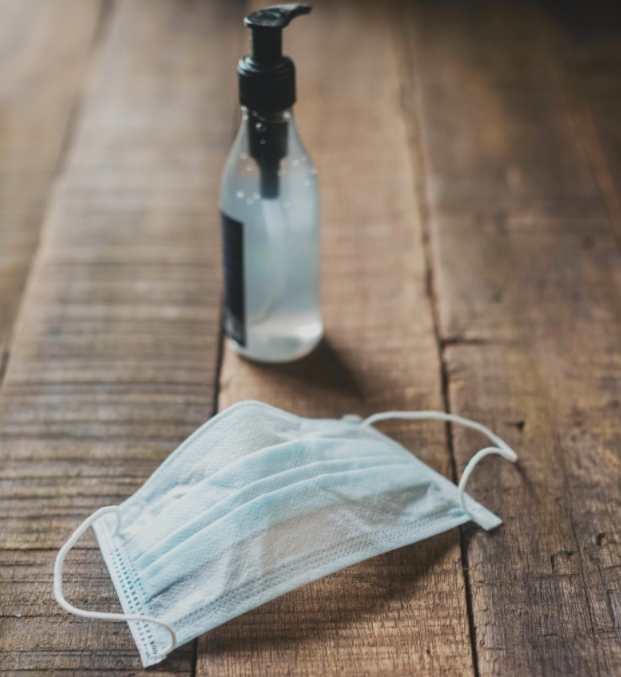COVID-19 Update July 1, 2020
- icshealthsciencejournal

- Jul 1, 2020
- 3 min read
This article contains:
The Effectiveness of Face Masks Against COVID-19
The Effectiveness of Face Masks Against COVID-19
Written By: Kandharika Bamrungketudom
As the reopening after the COVID-19 lockdown continues to progress, it is still very important for those going outside of their houses to wear face masks, as recommended by the Centers for Disease Control and Prevention (CDC). The CDC extends the recommendation to the general public, with the exception of those who are 2 years or younger, those with trouble breathing, and those who are unconscious. The question now, however, is which kind of mask is effective in stopping the spread of COVID-19 and in preventing COVID-19 from entering the human body.
Surgical Masks:
Surgical masks (shown above in the image) vary in thickness and therefore their ability to prevent the spread of disease and their ability in protecting the wearer from contact with the environment. One property that must be noted of this type of mask is that surgical masks are intended only for one-time usage and must be thrown away afterward.
Since surgical masks are loose-fitting, they do not provide a complete barrier from the smaller particles transmitted by coughs, sneezes, or certain medical procedures that may enter the body. Although surgical masks do not offer complete protection, they have the ability to prevent the wearer from coming into contact with larger particles or substances, such as droplets, sprays or splatters, and the ability to reduce the contact of the wearer’s own saliva and respiratory secretions to others.
As of May 28, 2020, the U.S. Food and Drug Administration (FDA) has not yet approved any type of surgical masks as protection against the coronavirus. It should still be noted that this type of mask still offers some protection for the wearer, and still should be worn when no other alternatives are available.
N95 Respirators:
This type of protective device is designed to be close-fitting to the wearer’s face, therefore providing a more effective barrier for the wearer from the particles from the outside than the surgical mask. As the name indicates, the N95 respirators are designed to provide a 95% effective barrier for the wearer from the external environment.
It must be noted that some types of N95 respirators contain valves. These valves, although filter the incoming air, do not filter the air coming out from the wearer and therefore do not prevent disease spread if the wearer is infected.
Similarly to the surgical masks, the N95 respirators are also designed for single usage and should be disposed of once used.
The FDA does not recommend this type of mask for children or those with facial hair (since a proper fit cannot be achieved). Furthermore, the CDC does not recommend the general public to wear the N95 due to the shortage of supplies, where the N95 should be distributed out to healthcare workers first.
Cloth Masks:
During the COVID-19 outbreak, many have turned to using self-made cloth masks due to the shortages of mask supplies in the market. Many have also questioned the degree of effectiveness that self-made masks could offer.
The National Academies of Sciences, Engineering, and Medicine published a scientific review regarding that question. In the 7 studies that were reviewed, the level of effectiveness of the cloth mask in preventing the spread of the disease from the outside and from the wearer ranged from very poor to 50% effective, depending on the materials used. The mask that showed 50% effectiveness was made of 4 layers of polyester knitted cut-pile fabric.
Another study done at Wake Forest Institute for Regenerative Medicine found that the best self-made masks were those with “2 layers of high-quality, heavy weight ‘quilter’s cotton’ with a thread count of 180 or more, and those with especially tight weave and thicker thread such as batiks.” These can achieve up to 79% effective filtration of outside particles, while the poorer made masks can only achieve around 1% effectiveness of particle filtration.
With this in mind, it is very important for a homemade mask to be made of multiple layers of fabric as opposed to only one thin layer.
Face Shields:
The CDC does not yet recommend the substitution of cloth masks with face shields for daily activities, as there is no evidence of their effectiveness in controlling disease spread yet. However, if they are to be used without masks, the face shields should cover the sides of the wearer’s face, as well as below the chin.
In conclusion, the most effective type of mask against COVID-19 is the N95. However, due to the shortages and other recommendations, this may not be possible for the general public to obtain at the moment. The next best type of mask is the surgical mask, and finally, the cloth mask, when all other kinds are lacking.







Comments